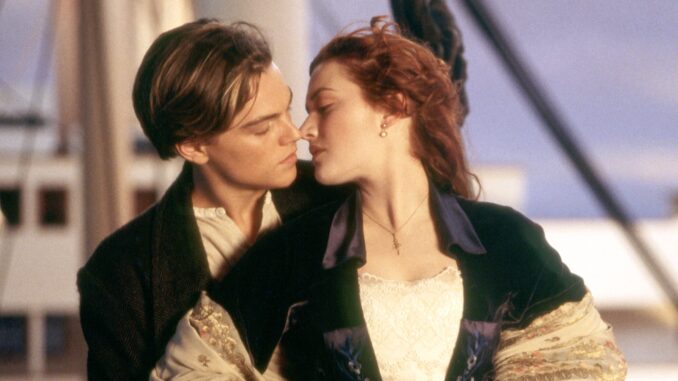
The Door and the Doubt: Kate Winslet, Titanic, and the Enduring Power of "What If?"
Twenty-five years after the RMS Titanic plunged into the icy depths of the Atlantic, one scene continues to haunt audiences, ignite debates, and even resurface in the subconscious of its own star: the image of Rose DeWitt Bukater floating precariously on a makeshift door, while Jack Dawson, submerged in the frigid water, succumbs to hypothermia. The tragic tableau, iconic and heart-wrenching, has spawned countless memes, YouTube investigations, and, most significantly, unwavering speculation. Now, after years of defending the narrative, Kate Winslet, the very embodiment of Rose, has added fuel to the fire, admitting, with a playful yet undeniable candor, that Jack might have, just might have, survived.
This simple admission, however late in the game, is more than just a playful critique of a cinematic choice. It speaks to the enduring power of "Titanic" as a cultural touchstone, a film that transcends its historical basis to become a canvas for exploring themes of love, loss, and the capricious nature of fate. Winslet's remark, therefore, echoes the collective "what if?" that has resonated with audiences for decades, turning the fictional tragedy into a personal and universally felt experience.
The "door" debate isn't just about physics or buoyancy calculations. It’s about the inherent human desire to rewrite tragedy, to seek alternative endings where love triumphs and lives are spared. Jack's death, after all, feels profoundly unfair. He embodies sacrifice, giving up his own life to ensure Rose's survival. He is the artistic, adventurous spirit that Rose is denied within her suffocating social circle, the catalyst for her awakening and self-discovery. His death, therefore, feels like a betrayal, not just of Rose, but of the audience's investment in their love story.
Winslet's statement, in a way, validates this sentiment. It acknowledges the nagging doubt that lingers beneath the surface of the film, the sense that perhaps, just perhaps, a slightly different arrangement, a little more ingenuity, could have saved him. This validation is significant because it reinforces the emotional resonance of the film. We are not simply passive viewers; we are active participants, invested in the characters and their fates, compelled to imagine alternative realities where tragedy is averted.
Furthermore, the enduring "door" debate underscores the importance of cinematic choices and their impact on audience perception. Director James Cameron has repeatedly defended his decision, citing dramatic necessity and the need to solidify the film's themes of sacrifice and loss. However, the fact that this single scene continues to generate such intense debate highlights the delicate balance between narrative necessity and audience expectations. Perhaps, in this case, the dramatic impact of Jack's death overshadowed the audience's desire for a less devastating outcome.
Beyond the narrative level, the "door" debate has also sparked a fascinating dialogue about gender roles and survivor's guilt. Rose, the sole survivor, bears the weight of Jack's sacrifice, and the film portrays her journey of healing and self-discovery as a testament to his enduring influence. However, some argue that Rose's survival, coupled with Jack's seemingly avoidable death, reinforces traditional gender roles, with the woman being passively saved by the sacrificing male hero. Winslet's admission, perhaps unconsciously, opens the door to a re-examination of these gender dynamics and the ethical complexities of survival.
In conclusion, Kate Winslet's recent comments on the "door" in "Titanic" are not merely a flippant afterthought. They are a recognition of the film's enduring power to captivate, provoke, and emotionally resonate with audiences decades after its release. The "door" has become a symbol of the film's enduring legacy, representing the inherent human desire to rewrite tragedy, question cinematic choices, and grapple with the complex themes of love, loss, and survival. It is a testament to the film's enduring ability to spark debate, ignite emotions, and keep the memory of Jack and Rose, and the tragic tale of the Titanic, afloat in the collective consciousness. The "door" may be gone, but the doubt, and the "what if?" it represents, will likely linger for generations to come.